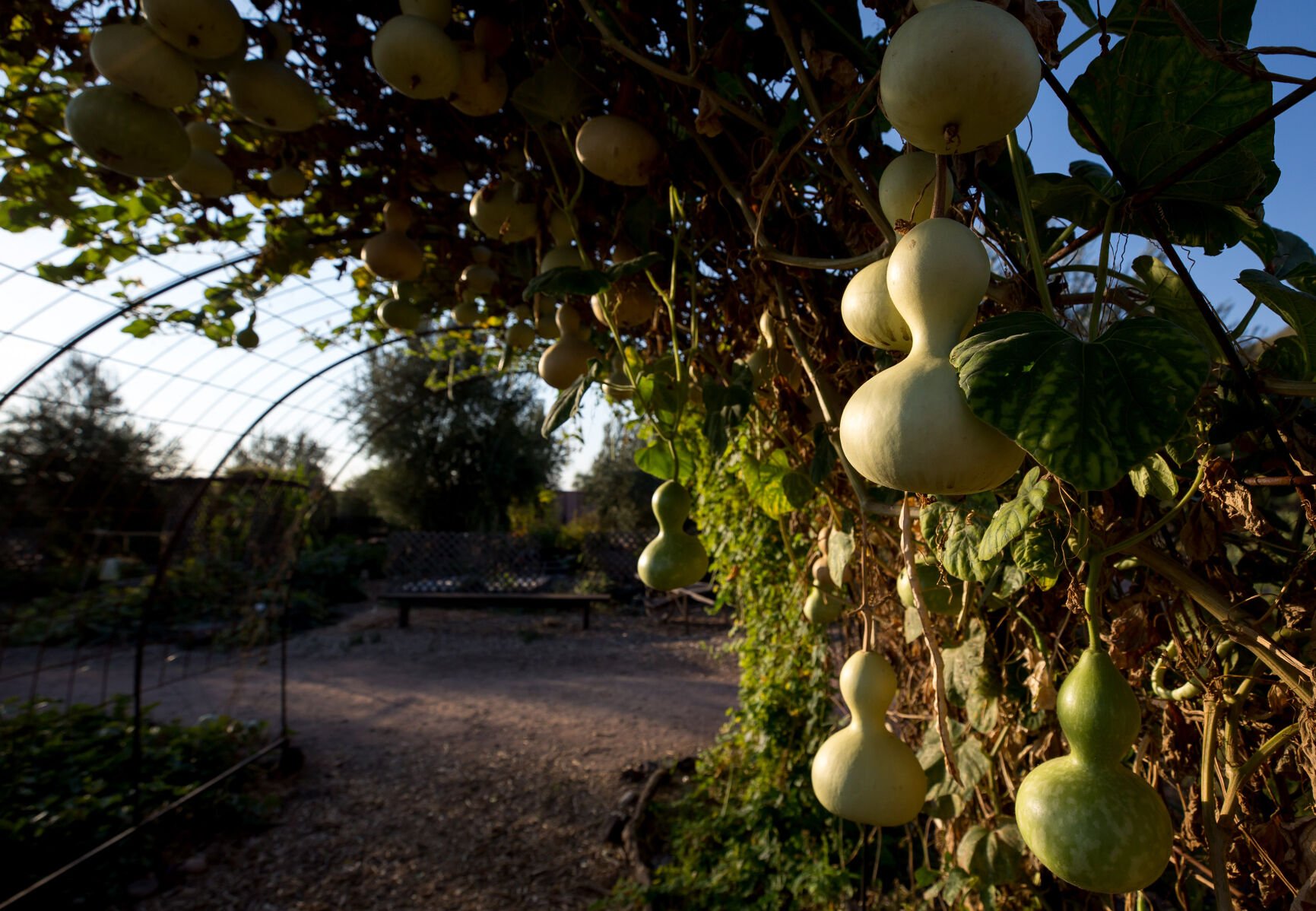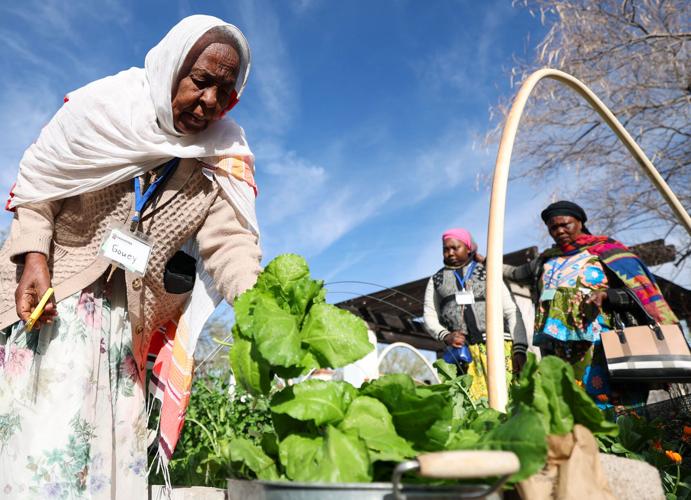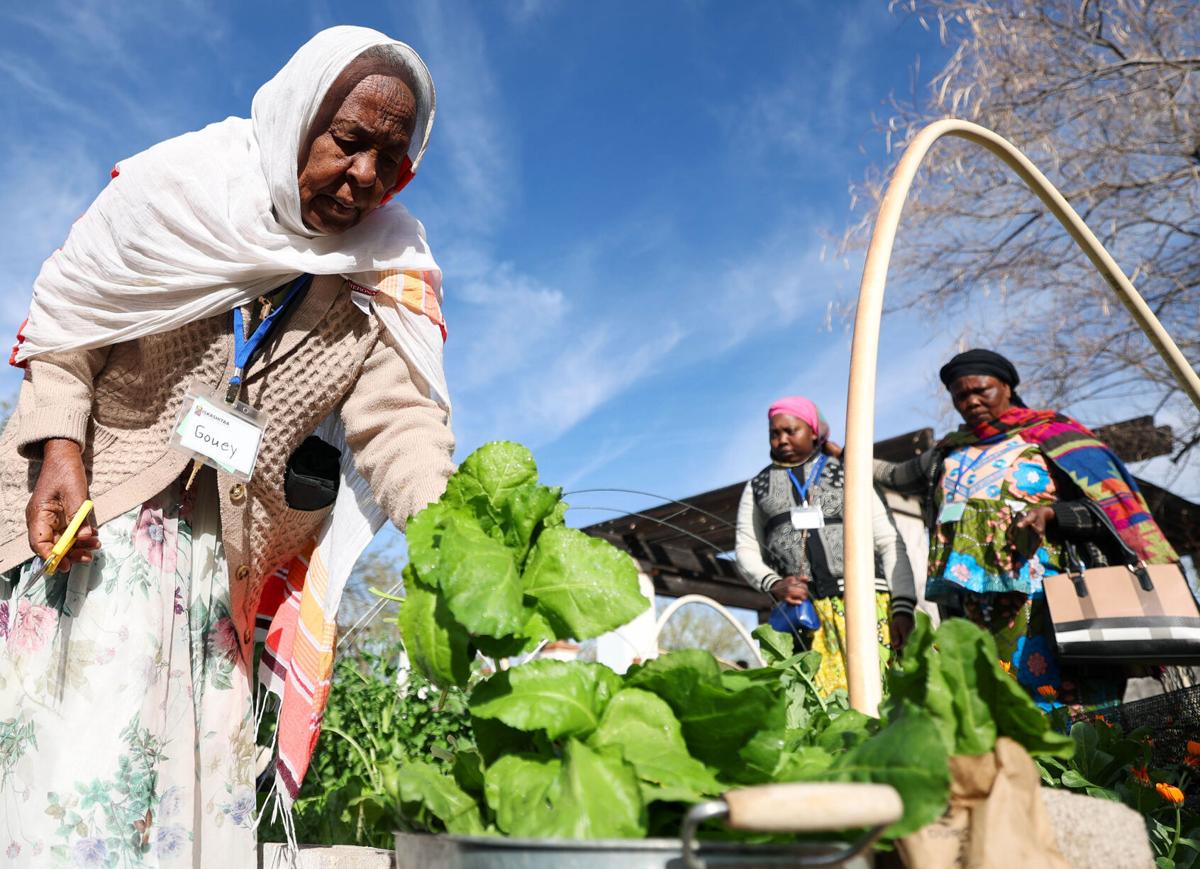A $750,000 grant will double the annual budget for Tucson City of Gastronomy over the next three years and allow the nonprofit to take its mission of preserving Tucson’s food heritage to home kitchens.
TCoG will use the Mellon Foundation Humanities in Place Program grant it landed last week to launch the Resilience Kitchen, an initiative focused on teaching home cooks about Tucson’s heritage ingredients and food traditions.
The program is designed to “preserve our food heritage, foster community placemaking and build sustainability in Tucson through food,” said Executive Director Jonathan Mabry.
The Resilience Kitchen program will host chef-led discussions, recipe exchanges, cooking demonstrations and other events, including pop-ups and online content. The goal, Mabry said, is that through collaboration with professional chefs, home cooks across Southern Arizona and Sonora will be able to identify “heritage ingredients that could be foods of the future with climate change.”
“That’s an example of how this program is connected to resilience,” he said. “The name refers to how we can be more resilient to events and economic and environmental changes through our cultural resilience. The food is an important source of this community’s cultural resilience, and is a way we can plan for a positive food future.”
“It will allow us to do a really deep dive into our heritage foods from several perspectives,” said TCoG Board President Janos Wilder. The program will explore how residents with generational ties use heritage ingredients and how those foods can be used in the future, he said.
“That’s one of the main missions of this program, to connect our foods of the past to our foods of the future,” Mabry added.
The program will highlight the region’s most ancient foods — the wild edible desert plants and the region’s earliest crops that go back more than 5,000 years and are “pre-adapted to high heat and aridity,” Mabry explained. Those include the corn grown by early Tohono O’odham that is planted at the start of the summer monsoon season and harvested 60 days later when the rains stop; and white Sonoran wheat, which has seen a tremendous resurgence in recent years because the wheat requires less water.
“Even our Kino heritage fruit trees that are really important parts of what the Mission Garden educates about,” he said. “Those are heirloom varieties of fruit trees introduced during the Spanish colonial period that grow best here. They are also desert adapted. So it’s our indigenous foods, it’s our introduced foods that have become heirloom crops and our heritage ingredients that are desert adapted, and so they are pre-adapted for climate change. Those heritage ingredients are multicultural and our most important ones are certainly the indigenous.”

Mission Garden grows gourds and other native plants and produce.
Resilience Kitchen will source those ingredients from local farmers, including Mission Garden, San Xavier Co-Op Farm and the Iskashitaa Refugee Network, Mabry said.
In addition to the Resilience Kitchen program, TCoG will use the funding to expand its existing programs, including the annual Pueblos del Maíz festival, the international celebration of corn that TCoG launched in 2022 in collaboration with the food-designated cities of San Antonio, Texas, and Merida, Mexico; Bergamo-Gandino, Italy, joined the festival in 2024.
This year’s four-day event, originally scheduled for April, will be held Sept. 25-28.
The organization also will use the Mellon Foundation monies to hire a program director to lead the Resilience Kitchen and other TCoG initiatives and to contract for fundraising help, including grant-writing, Wilder said.
“Our goal during the next three years, and starting as soon as we’re able, is to really start to create a stable financial base for the organization,” Janos said.
The Mellon Foundation grant is the largest that TCoG has been awarded since it formed in 2016, months after Tucson landed the nation’s first UNESCO City of Gastronomy designation in December 2015.
Mabry said he applied for the grant after the foundation reached out to him last October.
TCoG is the latest Tucson organization to land a Mellon Foundation grant. Recent grantees include YWCA Southern Arizona, Tucson Museum of Art and Historic Block, the University of Arizona and Southwest Folklife Alliance, which puts on the annual Tucson Meet Yourself folklife festival.
The grant also comes on the heels of the Trump administration eliminating arts and humanities grants in the spring, when Trump stripped funding from the National Endowment of the Arts and the National Endowment of the Humanities. His actions in April and early May included recalling grants that had been awarded but not yet spent.
Several Tucson organizations were among those affected by those actions, including the Arts Foundation of Tucson and Southern Arizona, whose $500,000 American Rescue Plan grant from 2021 was being rescinded. That money, though, had already been distributed, according to Arts Foundation CEO Adriana Gallego.
Weeks after the NEH cuts, the Mellon Foundation donated $15 million to 56 humanities councils nationwide to make up for some of the NEH losses.





